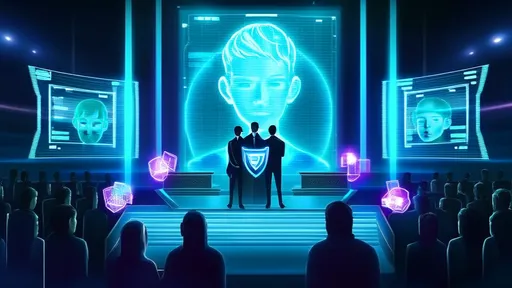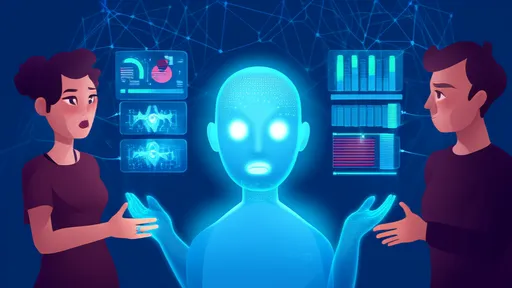The emergence of "metaverse relatives" has sparked a complex legal debate, particularly concerning the inheritance rights of virtual children. As digital avatars and AI-driven entities become more sophisticated, the line between virtual and legal personhood blurs, raising unprecedented questions for legal systems worldwide.
In recent years, platforms offering virtual family experiences have gained popularity, allowing users to create and raise digital children within immersive environments. These AI-generated entities learn, interact, and even develop unique personalities over time through machine learning algorithms. Some jurisdictions now face pressure to recognize certain rights for these digital beings, especially when users invest significant time and resources into their development.
The core legal challenge revolves around whether virtual children can be classified as digital assets or something closer to dependents. Current inheritance laws typically recognize two categories: tangible property and human beneficiaries. Virtual children fit neither neatly, existing in a gray area between software and simulated consciousness. Several high-profile court cases have emerged where users attempted to include their virtual offspring in wills, with mixed results.
Proponents of inheritance rights for virtual children argue that these entities represent a form of intellectual property combined with emotional investment. They point to cases where individuals have spent thousands of hours nurturing their digital families, sometimes at the expense of real-world relationships. From this perspective, denying inheritance rights invalidates meaningful human-digital bonds that have psychological and sometimes economic value.
Opposing views emphasize the fundamental differences between human children and AI constructs. Legal systems generally require beneficiaries to have either biological ties or formal adoption records. Virtual children lack both, being essentially complex algorithms with no independent legal status. Critics warn that granting inheritance rights could open floodgates for other AI entities to claim legal personhood, potentially destabilizing property laws.
The technological aspect further complicates matters. Unlike traditional digital assets with clear ownership trails (like cryptocurrency or NFTs), virtual children often reside on corporate servers under terms-of-service agreements. This raises questions about whether they can be inherited at all, or if they're merely licensed experiences that terminate with the original account holder. Some platforms have begun offering "digital legacy" features, but these remain voluntary corporate policies rather than legal obligations.
Psychological studies reveal that many users form genuine emotional attachments to their virtual relatives, with similar neurological responses to thinking about real family members. This research fuels arguments that the law should adapt to protect these relationships. However, legal scholars caution against conflating emotional significance with legal rights, noting that people form attachments to many things (pets, heirlooms) without those objects gaining legal personhood.
International approaches vary dramatically. Some countries with advanced digital economies have begun recognizing certain AI entities as "electronic persons" with limited rights, while others explicitly prohibit any legal status for virtual beings. This disparity creates challenges for global metaverse platforms where users from different jurisdictions interact. The lack of uniformity suggests that any resolution will require international cooperation rather than piecemeal national legislation.
Looking ahead, legal experts predict several potential pathways. One involves creating a new category of "digital dependents" with limited inheritance rights. Another suggests treating virtual children as advanced digital property subject to special valuation rules. The most conservative approach would maintain the status quo, requiring users to transfer accounts or assets through existing digital estate planning tools without recognizing the virtual entities themselves as beneficiaries.
As artificial intelligence continues advancing, these questions will only grow more pressing. The current debate over virtual children's inheritance rights may represent just the beginning of broader legal challenges surrounding AI personhood. What begins as a question about wills and testaments could ultimately force societies to reconsider fundamental concepts of family, property, and what it means to be a legal person in an increasingly digital world.

By /Jul 28, 2025

By /Jul 28, 2025

By /Jul 28, 2025

By /Jul 28, 2025

By /Jul 28, 2025

By /Jul 28, 2025

By /Jul 28, 2025

By /Jul 28, 2025

By /Jul 28, 2025

By /Jul 28, 2025

By /Jul 28, 2025

By /Jul 28, 2025

By /Jul 28, 2025

By /Jul 28, 2025

By /Jul 28, 2025

By /Jul 28, 2025

By /Jul 28, 2025

By /Jul 28, 2025

By /Jul 28, 2025

By /Jul 28, 2025